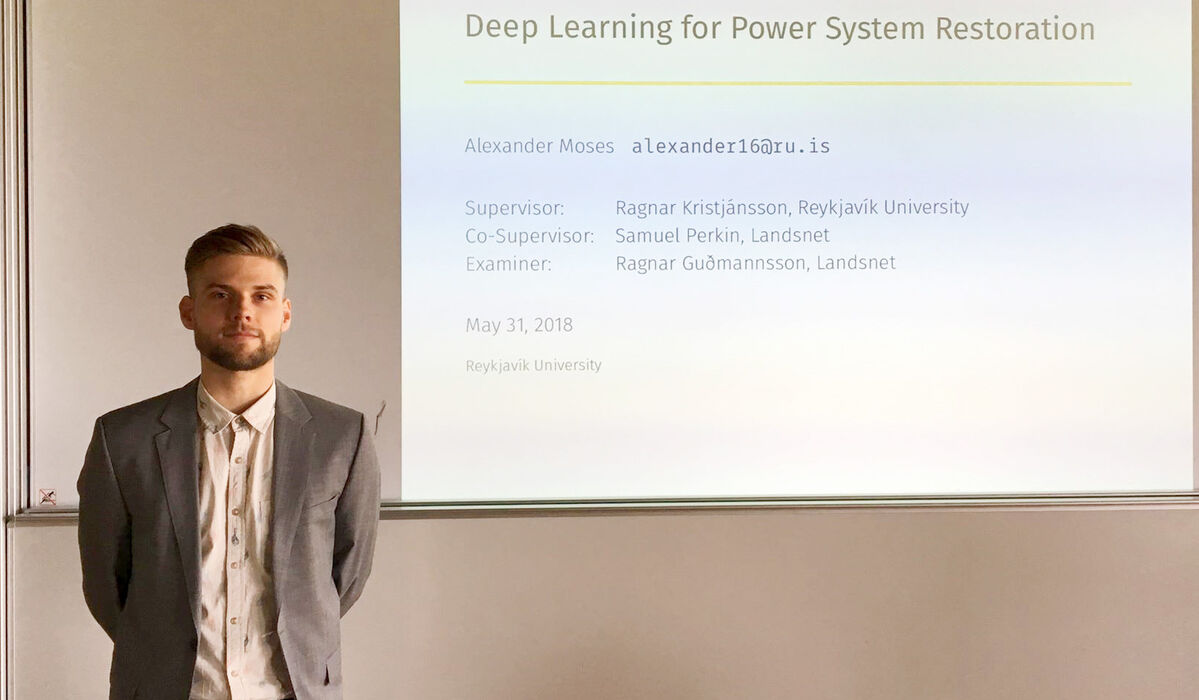MSc Thesis: Deep Learning for Power System Restoration
Alexander Danielsson Moses successfully defends her master's thesis
REYKJAVIK, July 25 - MSc in Sustainable Energy Engineering, Alexander Danielsson Moses successfully defended his master's thesis where he attempts to minimize the negative impact of outages using a deep feed-forward neural network (FFNN) trained to perform optimally during power system restoration. Alexander's work was supervised by Ragnar Kristjánsson from Reykjavik University and Samuel Perkin from Landsnet.

Before Alexander could train a neural network, he had to develop a flexible Restoration Model, devise a robust optimization strategy, and optimize a decision-making agent. A restoration model refers to a model that simulates system degradation as well as the implementation of possible restoration methods. Alexander used python and open sourced code from Github to create the restoration model.
To evaluate restoration sequences on a power system. Alexander considered costs due to unserved load, deviation from the generation schedule and deviation in system losses into account. Once this was in place, several optimization algorithms where optimizing restoration action sequences of known degraded states varied were implemented and compared. He tested the effectiveness of each method by finding the mean of the best solutions after a set number of optimization runs.
After comparing a genetic algorithm to the deep feedforward neural network, Alexander found that the FFNN is faster than the GA by three orders of magnitude. Alexanders work is relevant in the transition from tradition power systems to grids that respond better to outages. To read more about Alexander's work, see the following link.
Congratulations, Alexander on an excellent thesis!
